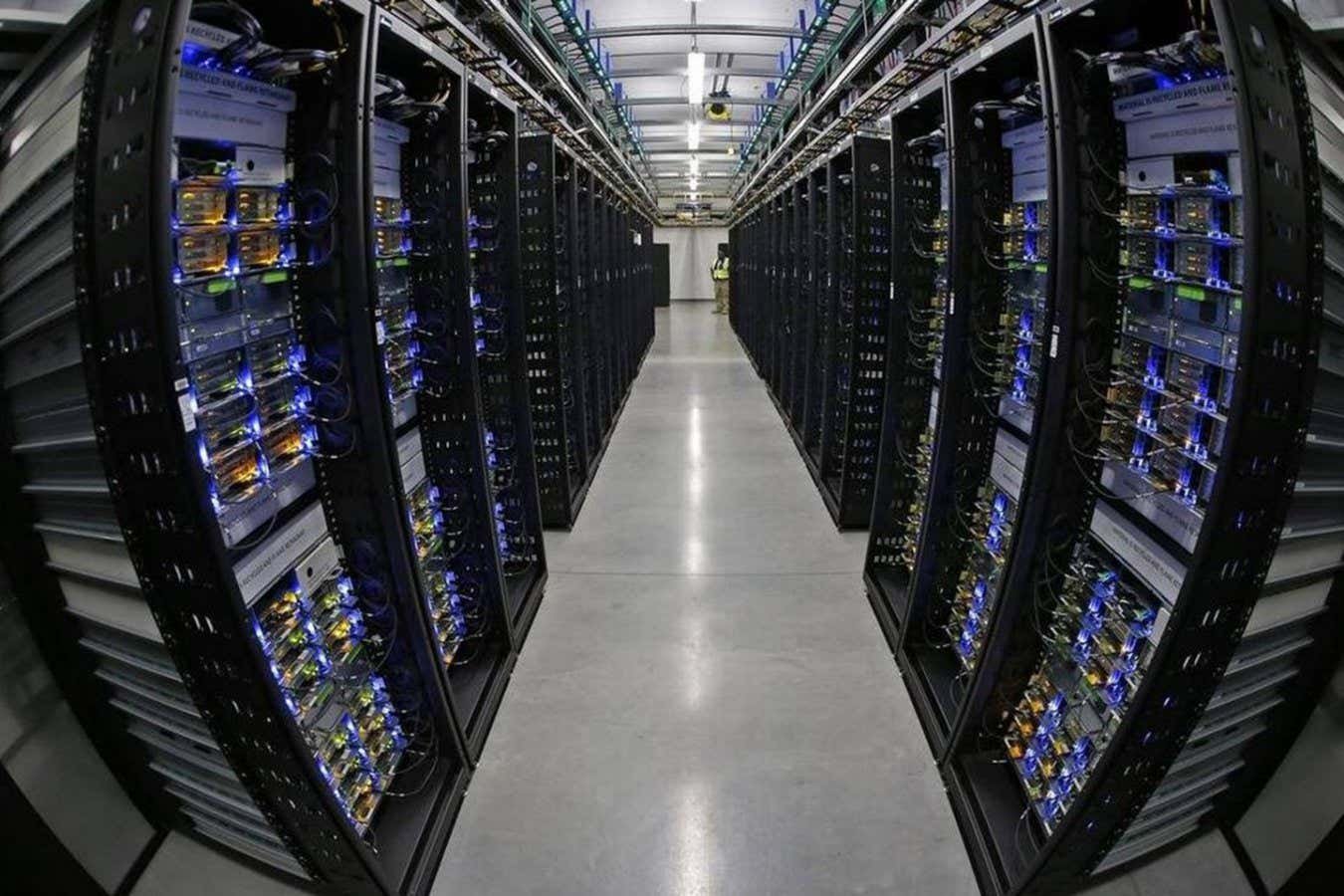
Servers fill a data centre in Texas
Paul Moseley/Fort Worth Star-Telegram/Tribune News Service via Getty Images
As data centres consume even more energy to serve the intensive computing needs of artificial intelligence, they increase the emissions of air pollutants. This could already be impacting public health, and by 2030, it could contribute to an estimated 600,000 asthma cases and 1300 premature deaths per year in the US by 2030 – accounting for more than one third of asthma deaths annually in the country.
“Public health impacts are direct and tangible impacts on people, and these impacts are substantial and not limited to a small radius of where data centres operate,” says Shaolei Ren at the University of California, Riverside. Because airborne pollution can travel long distances, increasing levels of pollutants can affect the health of people across the country, he says.
Ren and his colleagues, including Adam Wierman at the California Institute of Technology, developed those estimates based on the projected electricity demand from data centres. In the US, some of that demand is being met by burning fossil fuels, which produce air pollutants known to cause health problems, such as fine particulate matter. For instance, the electricity usage required for training one of today’s large AI models could produce air pollutants equivalent to driving a passenger car for more than 10,000 roundtrips between Los Angeles and New York City, according to the researchers.
To model these air pollution and emissions impacts in the US, the researchers used a tool provided by the US Environmental Protection Agency. They calculated that, nationally, data centres will have an overall public health cost that may exceed $20 billion by 2030. That is approximately double the public health cost of the US steelmaking industry and possibly rivals the health impact of pollutants emitted from the tens of millions of vehicles in the largest US states, such as California, according to the researchers.
Energy-hungry data centres are already affecting public health. The researchers estimated that the gas-powered generators used as backup power for facilities in Virginia’s Data Center Alley could already be causing 14,000 cases of asthma symptoms and imposing public health costs of $220 million to $300 million per year – if generator emissions are only at 10 per cent of the level permitted by state authorities. At the maximum permitted level, the total public health cost could multiply 10-fold to an estimated $2 billion to $3 billion per year. Such problems affect not only local residents, but also people in distant states such as Florida.
Some of the tech companies racing to build data centres are supporting low-emission energy sources, financing construction of renewable energy projects and investing in both conventional nuclear power plants and new nuclear reactor technologies. But for now, many data centres still heavily rely on fossil fuel power such as natural gas – with previous research suggesting that data centres could boost US demand for gas approximately equivalent to another New York State or California by 2030.
“The question around the health impacts of artificial intelligence and data centre computing is an important one,” says Benjamin Lee at the University of Pennsylvania. He described the paper as “the first to estimate these costs and quantify them in dollar terms” but also cautioned that the underlying approximations and assumptions behind the specific numbers need to be validated by additional research.
Topics:

Felecia Phillips Ollie DD (h.c.) is the inspiring leader and founder of The Equality Network LLC (TEN). With a background in coaching, travel, and a career in news, Felecia brings a unique perspective to promoting diversity and inclusion. Holding a Bachelor’s Degree in English/Communications, she is passionate about creating a more inclusive future. From graduating from Mississippi Valley State University to leading initiatives like the Washington State Department of Ecology’s Equal Employment Opportunity Program, Felecia is dedicated to making a positive impact. Join her journey on our blog as she shares insights and leads the charge for equity through The Equality Network.




